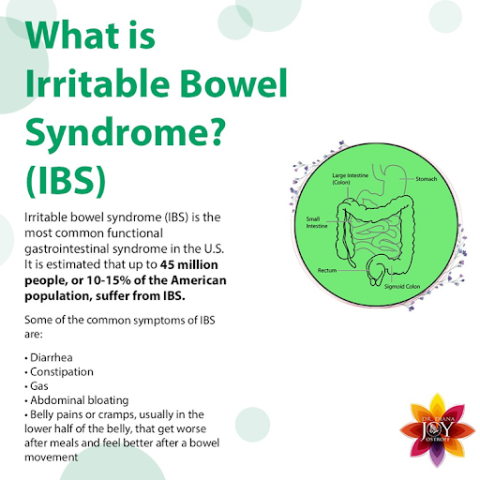
Chronic bowel dysfunction has become commonplace for many individuals, some having been diagnosed with IBD or IBS, yet patients may not understand the distinction, the treatment plans recommended, or the prognosis for their recovery. Often the standard treatment offers little in the way of long-term resolution, leaving patients hopelessly ensuring there are facilities available for imminent urgencies. While both conditions have similar names and symptoms, they require different treatments. Dr. Diana Joy Ostroff of the Center for Natural Healing explains the two conditions and proposed treatments. In some instances, patients may have both IBS and IBD simultaneously..
What is IBS?
Irritable bowel syndrome is a common digestive disorder of the gastrointestinal tract. IBS often causes significant discomfort, with symptoms ranging from mildly annoying to disabling. While IBS shares many symptoms with IBD, anemia, bleeding, fever and weight loss are not among them.

Patients suffering from IBS often experience chronic alternating diarrhea and constipation, as well as chronic gas and bloating. Food poisoning may be one cause, and according to doctors at Cedars-Sinai, up to 70 percent of IBS patients have previously experienced a severe case of food poisoning, however this is not the only cause.
Many physicians suggest patients with IBS increase soluble fiber intake and decrease consumption of insoluble fiber, along with avoiding problematic foods. Patients often cannot identify the problematic foods because the discomfort is continuous. Some of the likely foods that can exacerbate a problematic colon are dairy, food high in fat, wheat and gluten, chocolate, fried foods, red meat, caffeinated drinks, alcohol, beans, and vegetables high in sulfur, like garlic, leeks, onions, scallions, shallots and cruciferous vegetables like broccoli, brussel sprouts, green leafy vegetables, bok choy, cauliflower and cabbage. The problem with that plan is that patients lose out on the benefits of eating those foods. Those vegetables have properties that protect the heart, provide essential vitamins, and anti-oxidants and prevent cancer, while maintaining good cognitive health.
Unfortunately, there is no standard treatment plan for IBS. The currently available treatments target the symptoms. Dr. Diana Joy Ostroff treats the underlying imbalances, helping to regulate gastrointestinal health.
What is IBD?
Inflammatory bowel disease describes a spectrum of diseases causing inflammation in the intestines. Crohn’s disease or ulcerative colitis are the most common examples. Receiving an IBD diagnosis is a complex process that can often take months.
IBD Symptoms often include diarrhea, abdominal cramps, bloody stool, fever, anemia, blocked bowels, extreme weight loss, loss of bodily fluids, and appetite loss. Unlike IBS, IBD can be seen with diagnostic imaging and comes with an increased risk of colon cancer.
An IBD diet needs to be focused on anti-inflammatory foods to prevent flares, and some physicians recommend a healthier diet, however the majority of physicians who graduated from the top U.S. medical institutes were lucky if they received two to three hours of clinical nutrition in their four years of study. While struggling with debilitating bowel issues, it is often challenging for patients to make healthy choices over the long term as those foods considered healthy may actually increase the bloating due to the poor health of the intestinal lining
In general, IBD treatment plans involve managing the disease to control symptoms, however never establishing a permanent resolution. Many physicians prescribe antibiotics and other medication to stop diarrhea, and even surgery for severe cases, however never without side effects that may outweigh the perceived benefit.
Find solutions to gastrointestinal problems
Dr. Diana Joy Ostroff states that up to 95% of her patients experience digestive health issues as a primary or underlying condition which brings them to her medical center. Dr. Ostroff evaluates patients for their unique individuality, carefully assessing their diet, lifestyle, gut microbiome, blood, stool, saliva, food allergies, chemical sensitivities, toxic load, and genetics, and makes clinically proven recommendations, individualized dietary guidelines, and medicinal natural remedies best suited for each patients’ unique body and concurrent health profiles.
With Dr. Ostroff’s natural health treatments, patients are receiving treatment for the underlying causes behind their digestive health issues, working toward optimal health and wellness.
Conclusion
With more than 33 years of experience, Dr. Diana Joy Ostroff assists patients in resolving their digestive issues using a comprehensive naturopathic approach designed to work toward full recovery of the gastrointestinal system. To learn more, visit the website or reach out on social media at Facebook, Twitter, and Instagram.
Media Contact
Company Name: Center for Natural Healing
Contact Person: Dr. Diana Joy Ostroff ND, LAC
Email: Send Email
Country: United States
Website: https://www.naturalhealinghawaii.com/
